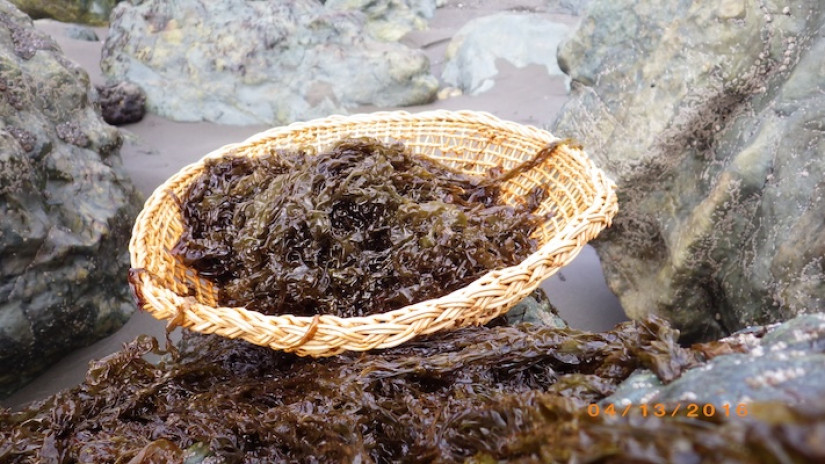
PROJECT HIGHLIGHT
The recent decline of California's ghvtlh-k'vsh (kelp) forests directly affects the cultural lifeways and, thus, health of the Tolowa Dee-ni' Nation, prompting this project to train and certify up to ten Natural Resources Staff and Tribal Citizens to conduct kelp monitoring and restoration efforts.
PROJECT SUMMARY
The Ghvtlh-k'vsh shu'-srnelh-'i~ (Kelp Guardians) project represents a collaboration between the Tolowa Dee-ni' Nation (TDN) and three key partners: Reef Check Foundation, Sunken Seaweed and the Rou Dalagurr Food Sovereignty Lab and Traditional Ecological Knowledges Institute at Cal Poly Humboldt. Ghvtlh-k'vsh (kelp) forests hold profound ecological and cultural significance to the TDN and other coastal Indigenous communities in Northern California. As first stewards of the land and sea since time immemorial, the Nation has been and always will be conservationists grounded in a holistic perspective towards stewardship, restoration and understanding nature's intricate interconnectedness and balance.
This initiative addresses a critical gap, as TDN's Marine Division does not currently have the knowledge or training to monitor and restore ghvtlh-k'vsh forests. The project brings intensive training for TDN Natural Resources staff to acquire critical monitoring skills, such as scientific diving and kelp monitoring protocols. In partnership with Sunken Seaweed, TDN is piloting the use of tumble culture for production of lat (Pyropia spp.) to be used in cultural practices and in fostering tribal food sovereignty. The work also engages Indigenous youth in kelp restoration workshops rooted in community-based participatory methodologies.
The project has already achieved substantial progress across multiple areas. Nine Tolowa citizens have completed Open Water SCUBA certification through Reef Check's Dive into Science program, with more advanced Scientific Diver training planned to develop the Nation's capacity for independent kelp monitoring. Sunken Seaweed has established groundwork for kelp farming and restoration, developing informational materials, conducting site assessments, designing a land-based seaweed farm and submitting permitting paperwork for ocean-based kelp farming in Humboldt Bay. The Food Sovereignty Lab has created a credit-bearing internship program at Cal Poly Humboldt, and community engagement efforts have reached approximately 2,500 people through various outreach activities. These practices can serve as a template for other Indigenous communities seeking to develop culturally relevant kelp forest monitoring and restoration within their ancestral territories, promoting sustained representation of tribal coastal community stakeholders in policy and management of marine resources.